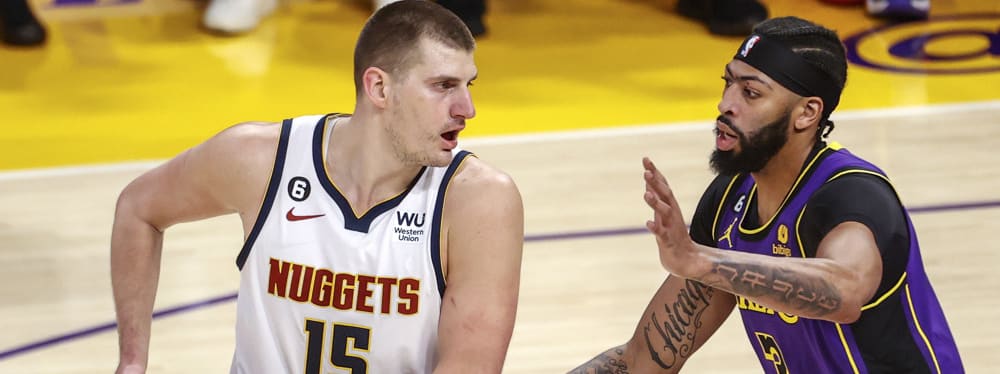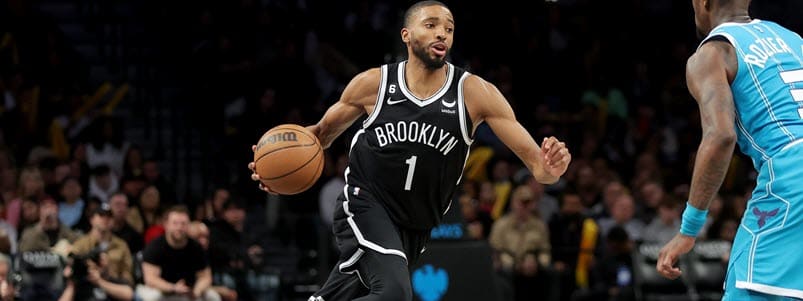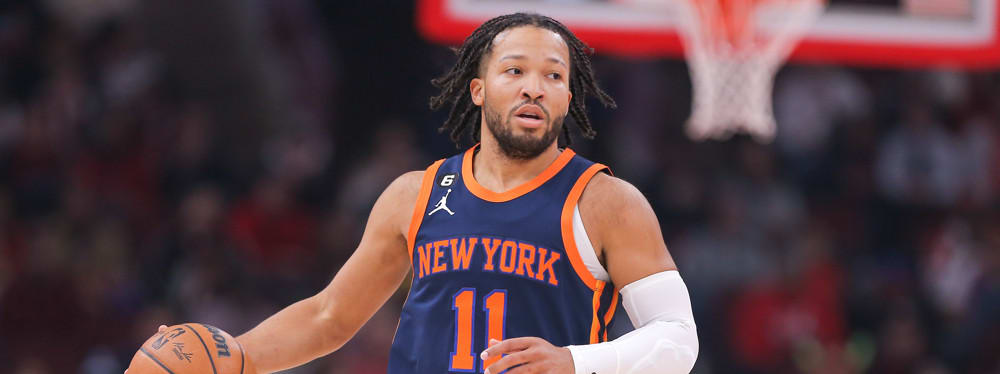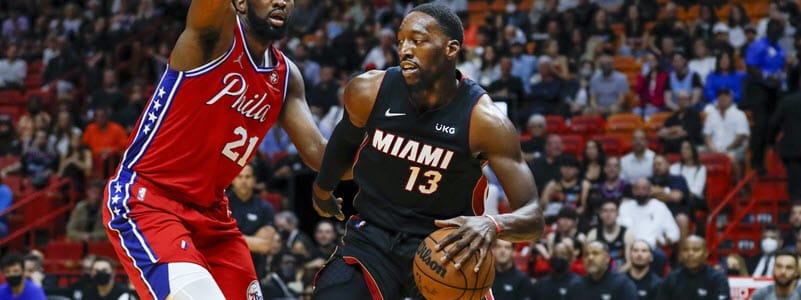Recent RotoWire Articles Featuring T.J. Warren
See More
Warren played just four games last season after suffering a stress fracture in his foot that required surgery. It was a highly anticipated campaign for the forward after he played shockingly well in the 2020 Orlando Bubble, where he averaged 34.8 points, 6.6 rebounds, 2.4 assists, 1.6 steals and 1.4 blocks in the first five games. Warren is expected to come into the 2021-22 season healthy, though injuries have been the overarching story of his career. He's been in the league since 2014 and hasn't played more than 67 games in a season. That hasn't stopped him from being a strong per-game producer, however. From 2016-17 through 2019-20, Warren averaged 17.9 points on 51/36/79 shooting, 4.7 rebounds, 1.3 assists and 1.1 steals in 32.2 minutes -- good for an average per-game fantasy rank of 76.5. In 2021-22, Warren figures to start at small forward for the Pacers. He should be in position to again be a top-100 player, but fantasy managers need to keep in mind his prevalent injury history.
Warren took well to his new home in 2020, as his first season with the Pacers proved to be a success. The sixth-year wing posted the highest scoring total of his career (19.8) while shooting a career-best 53.6 percent from the field and shooting over 40 percent from three and 81 percent from the charity stripe for the second straight season. Warren's ancillary stats were helpful, as he grabbed 4.2 boards per contest, dished 1.5 dimes and compiled 1.7 combined blocks/steals per game. While those numbers didn't dazzle, his peripherals certainly didn't sink him, as is sometimes the case for primarily-scoring players. Warren really found his groove in Bubble play, as he kicked off the festivities with a 53-point eruption and at least 32 points in three of his next four games. He finished the season on a high note, averaging 26.6 points, 6.3 boards and 2.9 triples on 54.1/92.6/47.5 shooting splits. With Victor Oladipo out of the lineup for most of the season and Malcolm Brogdon in and out as well, Warren had the advantage of increased usage, though that's likely to take a hit in 2020-21.
After spending the first five years of his career in Phoenix, this will be Warren's first season on a likely playoff team after he was traded to the Pacers back in June. For the most part, Warren has shown steady improvement in each year since entering the league back in 2014, but his biggest drawback continues to be his inability to stay on the floor. He appeared in just 43 games across the 2018-19 season due to a lingering ankle injury, but he still averaged 18.0 points and 4.0 rebounds per game while shooting a career-best 42.8 percent from behind the arc on 4.2 attempts per game -- by far the highest volume of his young career. In Indiana, Warren will be surrounded by more offensive talent than he ever has before, but with star guard Victor Oladipo not expected to return until December while he recovers from knee surgery, Warren may be leaned upon in the first half of the season for a heavier workload offensively as the team's likely starter at small forward. The 25-year-old has shown flashes of being a great scorer in this league, but his fantasy value will always be limited due to the number of games he tends to be sidelined for and his lack of consistent production in the box score beyond the scoring column.
Warren took the court for just 65 games during the 2017-18 season, marking the fourth straight year where he's been limited to 66 or less contests due to injuries. Despite the injury concerns, the 24-year-old put together his best season to date, most notably upping his scoring to a career-high 19.6 points per game after finishing the prior campaign with just 14.4 points. Warren also chipped in with 5.1 rebounds, 1.3 assists and 1.0 steal, while playing 33.0 minutes per outing. However, Warren once again struggled to make an impact as a three-point shooter, hitting a total of 20 deep balls at a brutal rate of just 22.2 percent from beyond the arc. That was a second straight season of shooting well below 30 percent and at this point, there's no indication that number is going to tick upwards. With the Suns selecting Deandre Ayton with the No. 1 overall pick in the 2018 NBA Draft, there are some concerns that Warren's usage drops with another outstanding player to battle with for touches in the frontcourt. In addition, the Suns also brought in veteran Trevor Ariza as a free agent, who is another player that could steal some minutes at the forward positions from Warren. Considering his three-point struggles and lack of significant cross-category production already, a potential drop in scoring due to the aforementioned additions would be devastating to his Fantasy value in most leagues. Look for Warren's numbers to potentially fall back to the production he had in 2016-17 rather than what he finished with this past season.
Warren appeared in just 66 games last season due to head and foot injuries, though continued to demonstrate his potential when he did take the floor. Last season, in Warren’s third year as a professional, he recorded 14.4 points, 5.1 rebounds, 1.2 steals and 1.1 assists across 31.0 minutes per game. The 6-foot-8 forward also shot 49.5 percent from the field and 26-of-98 from distance. That said, it’s important to note that the Suns drafted forward Josh Jackson with the fourth overall pick in the 2017 NBA Draft, who plays both Warren’s positions (small forward/power forward). There’s a strong possibility that they’ll occupy the floor at the same time, but the overall situation will seemingly make it difficult for Warren to increase his workload and/or usage. So, while Warren should continue improving as a player, that may not necessarily be reflected by a significant jump in his counting stats, especially if he sees a slight downtick in minutes. For that reason, it seems safe to assume he’ll probably hover around his production from last season, making him a mid-tier option at the small forward slot. It’s important to note the risks before drafting him, though, as the Suns have no shortage of young and talented forwards on the roster.
Warren appeared to be in the midst of a minor breakout during his second season in the league, even putting pressure on P.J. Tucker for the starting small forward job. However, things fell apart for Warren in early February, when he was diagnosed with a broken foot that would sideline him for the rest of the season. In his 47 games, Warren was at least able to establish himself as the Suns’ top scoring source off the bench, averaging 11.0 points to go along with 3.1 rebounds, 0.9 assists and 0.8 steals in 22.8 minutes per game. Warren resumed running earlier in June and seems to be trending toward availability for training camp. While Tucker retains the top spot on the depth chart, he required back surgery in mid-September that will likely sideline him through the start of the season, creating an opportunity for Warren to claim a starting role if he proves in camp he’s recovered from the foot procedure. The Suns could also opt to roll a smaller starting lineup that would feature Devin Booker at small forward, but either way, Warren seems poised to grab significant minutes right away to begin his third NBA campaign with Tucker out of commission. He’ll likely see his playing time recede once Tucker returns, but if Warren distinguishes himsef early on, the Suns could certainly opt to keep him ahead of Tucker on the depth chart.
Warren, a lottery pick in the 2014 draft, appeared in only 40 games for Phoenix last season, averaging 6.1 points and 2.1 rebounds while shooting 53 percent from the floor and 24 percent from three. The North Carolina State product spent considerable time in the D-League, appearing in nine games for the Bakersfield Jam over four separate assignments. Warren had trouble finding minutes in Jeff Hornacek's wing rotation early in the year, but he worked his way into the regular rotation over the final two months of the year following a trade deadline roster shake-up. Warren saw nearly 21 minutes per game over the final 20 games of the season, averaging 7.9 points and 2.7 rebounds while shooting an impressive 55 percent from the floor. After losing some depth on the wing in the offseason, the Suns expect Warren to be a part of the every-night rotation, and he'll likely begin the year as the primary backup to P.J. Tucker at small forward. Warren figures to see competition from promising rookie Devin Booker, but he could be one of the beneficiaries if Markieff Morris is moved before the season, which seems less like an "if" and more like a "when". Per Basketball-Reference, 32 percent of Warren's minutes last season came at the power forward spot, and he could continue to see time as a small-ball four in certain lineups.
Warren is entering his first season in the NBA after spending two years at North Carolina State. In his final season with the Wolfpack, the 2013-14 ACC Player of the Year averaged 24.9 points and 7.1 rebounds in 35 minutes per game. As the 14th-overall pick in the 2014 NBA Draft, Warren is clearly in the plans as the team moves forward. He will likely see time at both forward positions and has the potential to carve out a role early in the season given the Suns' relative lack of wing scoring. As seen in college, and in the NBA summer league, Warren can flat out light up the scoreboard, but the question is whether or not he'll have sufficient opportunities as a rookie. His talent is unquestionable, but the Morris twins, P.J. Tucker, and Gerald Green figure to command a lion's share of the minutes at small forward. Warren saw time at power forward in college, but it seems more likely he transitions to a small forward role in the NBA. For now, he'll open as a bench player and will have to earn his spot in the rotation. Still, Warren is worth a late-round flier in deeper formats because of his potential to be a contributor offensively.












